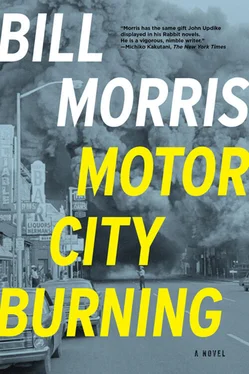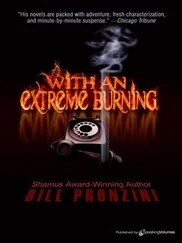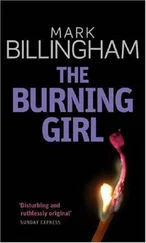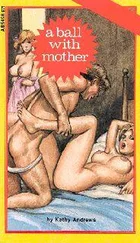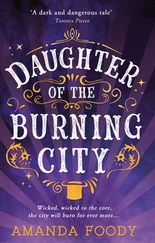“What is?”
“Well, Mr. Murphy told me the guy who traded it in was colored. I never heard tell of a nigger covering up a pink paintjob with a black one. Usually they go the other way.” Ernest Roquemore grinned at his little insight. A greaser who thought he had things figured out. “And I coulda puked when I seen that paintjob.”
“You mean the color?”
“No, I mean the paintjob. Looked like he done it himself when he was drunk.”
“How could you tell?”
“Cause it looked like shit — orange peel, drip marks, holidays, you name it. Didn’t even tape off the chrome right. Typical nigger thing to do, fuck up a cherry ride with a twenty-dollar paintjob. Guess he was trying to tell the world he’s black and he’s proud, or somesuch shit.”
When Doyle leaned close to the driver’s door, his delight doubled. The seats were pleated red vinyl halfway down, then black fabric shot through with silver glints. He thought of that traffic stop when he’d seen Willie Bledsoe’s long brown arm resting on red vinyl. On this red vinyl. He thought of Charlotte Armstrong seeing a shiny old car with red and black seats pull up beneath her window on the morning of July 26, 1967. This shiny old car.
There was no doubt in Doyle’s mind that he was looking at the car that transported the gun that fired the bullet that killed Helen Hull. If that gun had been seized in the Riopelle raid. . Doyle forced himself to snuff the thought and the tingling sensation that came with it. He said, “Interior looks good.”
“Yeah, I’ll say that much for the nigger. He had the good sense to leave the interior alone. And he babied her. Everything was original — except that fucked-up paintjob.”
“How many miles it have on it?”
“That’s the most amazing thing of all. The paperwork said twenty-four thousand and change, so of course I figured the odometer’d been turned back. But when I did a compression check, the engine was like brand new.”
“Chick Murphy told me the same thing. Anything in the trunk when you bought it?”
“Just a bumper jack, a spare tire and some oil stains.”
Gun oil stains, Doyle thought, burping a toxic little cloud of chili and onions. He asked Ernest Roquemore not to touch the car until an evidence team came down to go over it. Roquemore happily complied, said he needed to get that yellow Ford coupe back on the street anyway.
As Doyle let himself out through the gate, Roquemore was already draped back over the front fender of the yellow Ford. He was cursing. The top halves of his ass cheeks glowed proudly in the summer sun as a different woman’s voice came out of the radio: “My momma socked it to the Harper Valley Pee Tee Ayyyyyyy. . ”
Ah, downriver.

There were only three people in the squad room when Doyle got back from Wyandotte. Walt Kanka was in the far corner watching TV, and Jimmy Robuck and Sid Wolff were at Jimmy’s desk playing checkers, which was strictly no-contest. By the time he was old enough to drop out of high school, Jimmy was the undisputed checkers champ of Paradise Valley, the throbbing heart of Detroit’s black East Side, able to whip all the barbershop hangers-on and street-corner hustlers. He was also skilled at carrying bags of money, running numbers, rolling drunks and hot-wiring cars. Eventually he graduated to strong-arm robbery and dope dealing, even ran a short string of girls out of the Gotham Hotel, a promising and diversified career that got cut short by a two-year stretch at Ionia on a weapons charge. Upon his release Jimmy decided that since he was going to carry a gun for the rest of his life he might as well have a badge to go with it, and so he enrolled in the police academy and became a legendary East Side uniform, in touch with the streets like no one else because he’d spent his first twenty years working those streets. He knew every blind pig, chop shop and five-dollar whorehouse, and he forgot nothing — no face, no name, no bad debt or grudge. And he wasn’t afraid to fight. Doyle had never seen anyone beat Jimmy Robuck at checkers or anything else.
That didn’t appear likely to change soon. Sid Wolff had his chin cupped in both hands. His face sagged like a melting candle. It was obvious he didn’t like what he was seeing on the checkerboard. Then again, Sid Wolff rarely liked what he saw, on a checkerboard or anywhere else.
Walt Kanka, his feet on a desk, was watching Walter Cronkite on the black-and-white Motorola with aluminum foil wrapped around its rabbit ears. On the screen Doyle could see a wall of helmeted cops wading into a crowd, nightsticks whirling.
“What’s that, Walt?” Doyle called across the room.
“Chicago, the Democratic convention,” he said without taking his eyes off the screen. “Would you look at those filthy sonsabitches! They never take baths and they think everybody should be effin each other all the time. Hit ’em harder! That’s it, stomp those long-haired pricks!”
Jimmy was looking at his watch, but Doyle beat him to the punch. “Don’t start, Jimmy. I just put sixty-six miles on that old Bonneville. You get my note?”
“Oh yeah. I got you note.”
“Where you been, Frank?” Sid said. “Scoping out the co-eds in Ann Arbor?”
“No, I went out to Birmingham. Got a good look at Helen Hull’s killer.”
Jimmy yawned. “It’s still your move, Sid.”
“Fuck you. I know whose move it is.”
“Where else you been?” Jimmy asked Doyle.
“Went to St. Clair Shores to talk to a car dealer. Then down to Wyandotte.”
“What’s in Wyandotte?”
“Our man Willie Bledsoe’s old Buick — the one that carried the guns to the Larrow Arms. I got there just in time, too. The new owner’d already stripped off almost all the paint. Turns out Bledsoe painted the car solid black just before he traded it in.”
“So what?”
“So doesn’t that tell you something?”
“Tells me the man likes black cars. So do I.” Nobody played devil’s advocate better than Jimmy Robuck. It drove Doyle up the wall sometimes, but they both knew it had to be done. Kept a cop honest. “Is painting you car black a crime now?”
“No, Jimmy, painting your car black’s not a crime now. But why does a guy get a cheap paintjob on a mint-condition classic car just before he trades it in — unless he’s trying to hide something? For that matter, why does he trade it in in the first place?”
“People trade up every day in this man’s town. That ain’t no crime neither.”
“The seats are still red and black, though, just like Charlotte Armstrong remembers them. And there’s oil stains in the trunk. May be gun oil. An evidence team’s on the way to Wyandotte to tear the car apart.”
“Terrific.” Jimmy turned to Sid. “It’s still your—”
“Fuck off! ”
“—but while you been out scopin circumstantial shit, Frank, we been doin some real legwork. Ain’t that right, Sid?”
Sid Wolff groaned and pushed a checker forward one square. “That’s right, you prick.”
Jimmy performed a triple jump and added Sid’s captured pieces to the tidy stack beside the board.
“What’d you guys find out?” Doyle said, walking up to Jimmy’s desk and noticing the tomatoes for the first time. There were four plump beefsteaks lined up beside the empty In/Out basket. Doyle picked one up and smelled it. “Where’d you get these?”
“Grew ’em. They for you. A little thank-you note for turnin me on to the joys of gettin my hands dirty.”
“Thanks, Jimmy. They’re beautiful.”
“Thank you, Frank. Flo’s makin ratatouille as we speak.” It was the French dish Frank served the first time he had Flo and Jimmy over to his place. Most delicious food Jimmy ever ate. Doyle said he made it from scratch with things he grew in his back yard and on his kitchen windowsill — all the vegetables, even the garlic, basil, thyme and parsley. That was the night Jimmy decided to take up gardening. It made sense. When he and Flo got urban-renewed out of Paradise Valley — the planners flattened the whole neighborhood to make way for the Chrysler Freeway, a slap in the face to every black person in the city — the Robucks bought a place in Conant Gardens, out near 7 Mile. Every house had a deep back yard designed to accommodate a garden. After that ratatouille feast at Frank’s, Jimmy decided to plant a garden of his own. These four beefsteaks were the first things he’d harvested, and he hadn’t felt so proud since his youngest girl’s college graduation. He turned to Sid. “Your move again.”
Читать дальше
